President Biden’s remarks at the Holocaust Memorial Museum’s Days of Remembrance betrayed a total misunderstanding of what antisemitism actually is—and how it must be resisted.
Judeophobia, now commonly referred to as antisemitism, has a long and vile history. Jews were singled out in the pagan world because of their insistence on worshipping only one God, and for their self-identification as a chosen people. They were also a rebellious, independent people.
Under Greek rule, Jewish elites were increasingly Hellenized, but as tradition has it, in 166 BCE, the Maccabees rebelled against foreign rule, clearing the Temple of what they perceived as gentile filth. The Roman takeover of Judea brought it under the rule of the most powerful political and military entity of the ancient world—a vast empire that tolerated the different ways of its numerous provinces if they accepted Rome’s rule. Yet instead of accommodating to the Romans, the Jews again rebelled. This was a fatal move for Jewish existence in Judea.
The Great Jewish Revolt in 66–73 CE ended up with the destruction of Jerusalem and the Second Temple and the eventual fall of Masada. It was here that the Zealots—as the rebels on that isolated hilltop called themselves—made their last stand against the empire. The Zealots had no interest in politics or compromise. For them the only alternatives were victory or death. When fighting the Romans, the choice was clear, and they met their inevitable death by their own hands as the Romans breached their defenses. At least this is what we are told by the Hellenized Jewish general turned Roman collaborator and historian Josephus Flavius—a story that remained suppressed and forgotten for many centuries, only to be revived by the Zionists as the epitome of Jewish nationalism and martyrdom. As for autonomous Jewish life in Judea, that came to an end following the disastrous failure of the Bar Kokhba Revolt of 132–136 CE.
The destruction of the Temple and the exile of the Jews created a new Jewry. Even before these traumatic events, vast numbers of Jews were living in such cities as Alexandria and Rome. As the Jews spread into Europe in the footsteps of the Roman legions, a new Jewish civilization developed in the European diaspora—where most Jews lived for the next two millennia. This new Judaism had no time for the suicidal passion of the Masada zealots. Its ethos was one of accommodation and survival as a minority in an alien environment. And that environment meanwhile cast off paganism and adopted Christianity—originally a Jewish sect claiming to be led by the messiah, the son of God, but one that unlike the Jews sought to bring all of humanity under its spell. As the Jews waited for their messiah far from their Promised Land, Christianity spread, or was brutally imposed, far and wide, eventually reaching the farthest corners of Europe and beyond.
Jews and Christians had an ambivalent relationship. For Christians, the Jews had denounced Jesus and called for His crucifixion; but they were also witnesses of that cardinal event and the most critical targets of conversion. For Jews, Christianity was a false outgrowth of second-temple sectarianism and posed a real and present danger to the continuation of Jewish faith, tradition, and community. In real life, Christian society came to depend on Jews for tasks forbidden to Christians—not least among them usury or moneylending—but it also feared and despised Jews as corrupt, filthy, and demonic. Jewish communities interacted with Christians in commerce, craftsmanship, manufacturing, and estate management, but they despised gentiles as ignorant and boorish, and feared both their power and their potential to lure Jews away from their faith. When crises struck, such as the Black Death, or when adventures beckoned, as was the case during the Crusades, Jews were liable to be slaughtered. At other times, Jews thrived as servants of the nobility, financiers of rulers, or merchants and shopkeepers in Christendom’s expanding towns and cities. Outside of these trades, the Jews wanted to keep to themselves, and the Christians wanted to stay away from them.
There was also a darker, mystical—not to say diabolical—aspect to this relationship. As early as the 12th century, possibly echoing the Christian belief in transubstantiation (whereby Christ’s flesh turns into bread and his blood turns into wine), Jews came to be accused of ritual murder, especially on Passover—when Jews are instructed to drink four glasses of wine and to eat unleavened bread. According to this increasingly widespread myth, Jews required the blood of Christian children to make matzos or for other ritual purposes. This “blood libel” thus added an additional magical layer to ongoing theological animosity and socioeconomic resentment against Jews, lasting well into the modern world.
Current Issue

But just as medieval Prague brought the Golem—a giant made of mud to protect the Jews from their foes which then turns against its own makers— into the world, so, too, it was the same modern era that for the first time in two millennia allowed Jews to leave the ghetto and join the rest of society, which simultaneously brought “antisemitism” into the world. Antisemitism differed from age-old Judeophobia in that it was a response to Jewish emancipation rather than to Jewish alienness. Emancipation (the granting of equal rights to Jews) and assimilation (the transformation of Jews into Europeans in their outward appearance, norms, social conventions and relationships) also seemed to pose a threat to both groups. For Jews, it potentially spelled the end of a separate Jewish identity, deeply rooted as it had been in community, faith, and strict boundaries vis-à-vis Christian society. For Christians, the multiple threats of modernity—rapid urbanization, the disintegration of patriarchal, religious, and communal authority, the loss of traditional professions in the face of industrialization and the creation of a new, impoverished, regimented, and alienated working class—came to be associated with the entry of Jews into mainstream society and their domination of precisely those slots that modernization has created, such as mass production, chain stores, the new media, and international banking.
“The Jews are our misfortune,” a slogan coined by the late-19th-century German historian Heinrich Treitschke, became the rallying cry of the pre-modern middle class, whose existence was threatened by modernization. These were not the easily identifiable traditional Jews with their beards and caftans but men and women who looked and spoke and behaved deceptively like the rest of society. Yet underneath their “European” guise, it was feared, lurked the old, conniving Jew, who was now associated with all the ills both of capitalism and of its mortal enemy, communism, since “his” goal was to undermine European, Christian society, and lord over it, as one of the first and perhaps most successful modern pieces of fake news, the forged Protocols of the Elders of Zion, purported to prove.
One response to antisemitism—the modern Judeophobia—was Zionism. Born in an era of growing ethno-nationalism—the idea that ethnic groups should form into nations and that nations should constitute themselves into states—Zionism concluded that the Jews were not only a religion or an ethnic group but also a nation, and one that deserved to eventually rule over itself in its own land. The Jews, it argued, were an abnormal people, living everywhere as a despised minority, destined to either endure their neighbors’ violence or be assimilated by them. Therefore, they had no choice but to “normalize their existence” in a land of their own, where they would constitute the majority and rule over themselves. Zionism, in other words, was the product of late-19th-century east-central European nationalism, from which it borrowed many of its attributes, and of the new antisemitism that targeted precisely those Jews who wished to become part of European society and join the nations in which they lived. If the Jews were to be designated the “misfortune” of such newly declared nations as Germany, then they had better create for themselves their own exclusive nation state.
The final—and, at the time, seemingly incontrovertible—proof of the need for a Jewish nation-state came in the wake of the Holocaust. The Jewish masses that the Zionists had hoped to bring to Palestine to make it into a Jewish-majority state had been murdered. The indigenous Arab population of Palestine, which progressively came to see itself as a Palestinian people deserving its own state, increasingly resisted the Zionist drive into the land under the appealing but evidently false slogan of bringing a “people without a land to a land without people.” The resulting 1948 War created a majority Jewish state by other means—not by multiplying the Jewish population tenfold through immigration but by expelling most of the Palestinian population from what became the State of Israel.
Israel was supposed to solve the “Jewish question” once and for all. A state where the Jews would enjoy sovereignty, security, and prosperity, where they would become part of the international community as equal partners, and where they would “normalize” their existence by being no longer a people of luftmenschen engaging in “air businesses” such as peddling and money exchange, disconnected from the soil on which they lived, but become farmers and soldiers, policemen and construction workers, a new breed of Jews, healthy in body and spirit. In other words, “sabras.”
In fact, Israel never solved the problems that led to its birth. Having undone two millennia of exile, as Zionism would have it, Israel never managed to normalize Jewish existence. Having sought to become a Jewish majority state at any price, it paid the price of creating a vast Palestinian refugee problem that it still refuses to address. Having enjoyed a Jewish majority for the first two decades of its existence, its greed for additional territory transformed it after 1967 into a country half of whose population are Palestinians, none of them with equal rights—most of them with no rights at all. Having sought to provide a secure home for Jews around the world, it has become the most unsafe spot for Jews on the globe. Having claimed to be the final answer to antisemitism, Israel is now the best excuse for antisemites around the globe, a nation whose addiction to violence and oppression, reliance on great powers and financial clout, and constant harping on the horrors of the Holocaust as an excuse for untethered violence against Palestinians are making even its erstwhile supporters shrink from it in discomfort, not to say horror and disgust.
And yet the accusation against Israel’s multiple critics, young people around the world, liberals and humanists, Jews and gentiles—many of whom had been raised on unconditional love for the country, and who idolized and idealized it—is that they are motivated by antisemitism or self-hatred. On Tuesday, May 7, President Biden denounced what he termed a “ferocious surge” in antisemitism on college campuses in the United States and around the world since the October 7 Hamas attack against Israel. In an important speech made at a ceremony of remembrance of victims of the Holocaust, Biden thus endorsed the false analogy between criticism of Israel’s indefensible policy of indiscriminate destruction of lives and property in the Gaza Strip, and antisemitism—a vile sentiment that has been shown to be almost entirely absent from the multiple protests by students and others around the world. Just as troubling, Biden seems to have endorsed the argument made by Israeli politicians and many of the country’s right-wing defenders, that opposition to Zionism, or at least the destructive, racist, Jewish-supremacist Zionism represented by Prime Minister Benjamin Netanyahu and his extremist government—made up of zealots in the mold of those who committed mass suicide in Masada, murdering their own wives and children and sending the Jews into 2,000 years of exile in the name of an insane, profoundly un-Jewish messianic faith—is equivalent to antisemitism. The definition of antisemitism by the International Holocaust Remembrance Alliance, which elaborates numerous cases in which criticism of Israel and Zionism counts as antisemitism, follows precisely these deeply erroneous lines. This is tantamount to saying that hundreds of thousands of anti-Zionist ultraorthodox Haredim around the world—including some in Israel’s own government—are also antisemitic.
One must wonder what led to this phrasing in the president’s speech. In part, this must be driven by pressures from conservative,Jewish nationalist donors and supporters—many with close ties to the Israeli right—even though in the United States they may be associated with liberal causes or institutions, such as Barry Sternlicht, a major donor to my own institution, Brown University, who withdrew his support after President Christine Paxson reached a landmark agreement with protesting students. Such donors, as well as university presidents dependent on them, prefer to call in the police and stamp out any voices protesting the atrocities perpetrated by the IDF at universities proclaiming liberal sentiments, diversity, and open-mindedness.
Popular
“swipe left below to view more authors”Swipe →
But I believe that perhaps even more important is a total misunderstanding of what antisemitism actually is and how it can and must be resisted. To be sure, antisemitism existed decades before the Jewish state was established—and would not disappear if Israel ceased to exist. But currently, it is Israeli policies—not only in Gaza, but more generally the long-term occupation and oppression of Palestinians—that are giving license to real antisemites, as well as converting supporters of the state, even those who once loved and cherished it, into determined opponents, in the name of precisely the same values that were supposed to have led to Israel’s creation: liberty, dignity for the oppressed, resistance against the oppressor, solidarity with the victims, and determined opposition to unbridled violence and the killing of innocents. Israel was created in the wake of the Holocaust under the banner of “never again.” This is what President Biden should have said: “Never again” means never again killing innocent Jews, as perpetrated by Hamas, just as much as it means never again killing innocent Palestinians, as in the IDF killing of over 14,000 Palestinian children. Never again wanton, callous murder. Never again impunity. This must always be the right policy against antisemitism as against any other type of racism and bigotry. And just as important, once the killing ends, as end it must, punishment for the guilty, Jew and gentile alike.
Thank you for reading The Nation!
We hope you enjoyed the story you just read, just one of the many incisive, deeply-reported articles we publish daily. Now more than ever, we need fearless journalism that shifts the needle on important issues, uncovers malfeasance and corruption, and uplifts voices and perspectives that often go unheard in mainstream media.
Throughout this critical election year and a time of media austerity and renewed campus activism and rising labor organizing, independent journalism that gets to the heart of the matter is more critical than ever before. Donate right now and help us hold the powerful accountable, shine a light on issues that would otherwise be swept under the rug, and build a more just and equitable future.
For nearly 160 years, The Nation has stood for truth, justice, and moral clarity. As a reader-supported publication, we are not beholden to the whims of advertisers or a corporate owner. But it does take financial resources to report on stories that may take weeks or months to properly investigate, thoroughly edit and fact-check articles, and get our stories into the hands of readers.
Donate today and stand with us for a better future. Thank you for being a supporter of independent journalism.
Thank you for your generosity.
More from The Nation
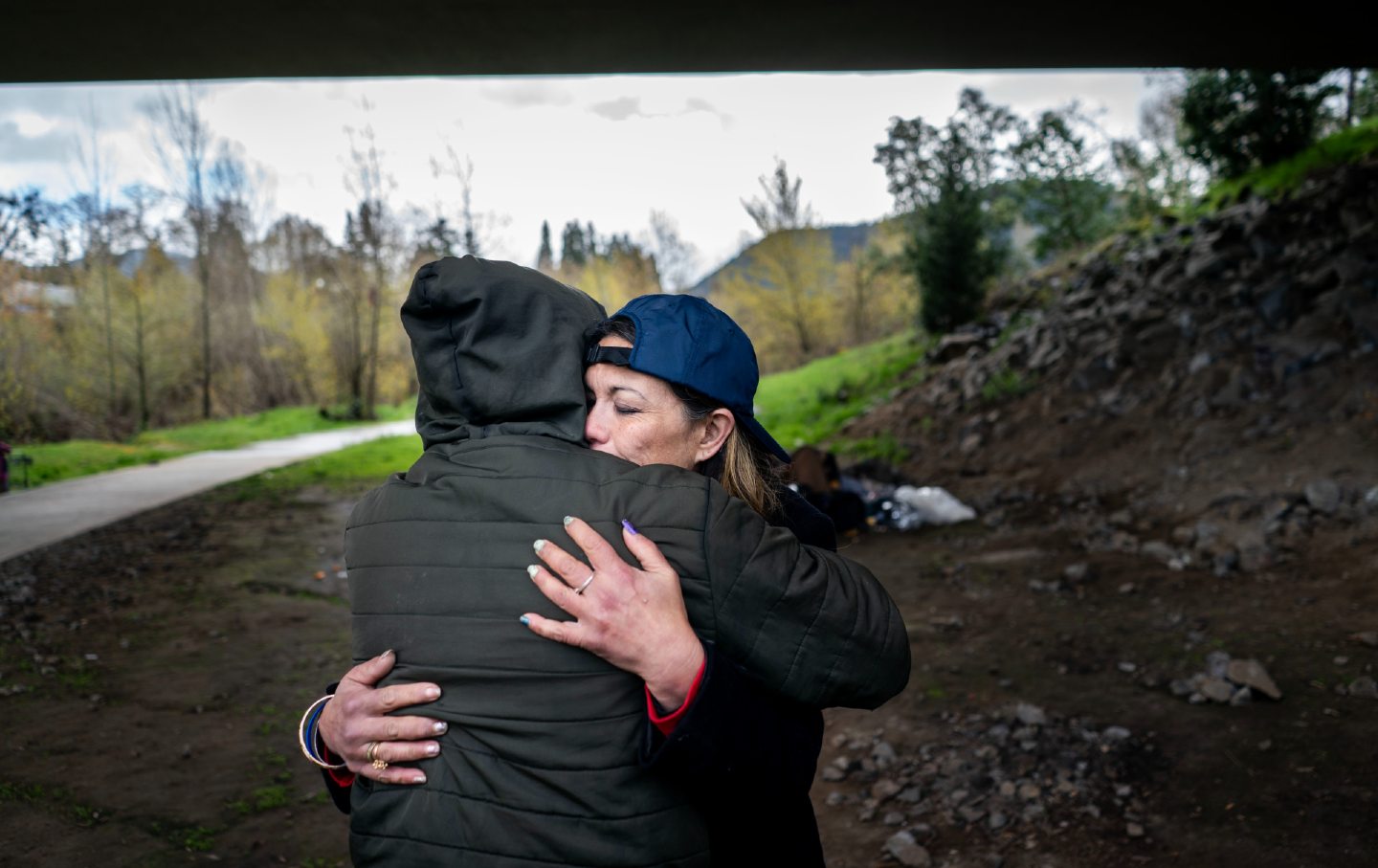
With Grants Pass, the Supreme Court appears set to allow cities, counties, and states to criminalize homelessness.
Comment
/
Jeremiah Hayden
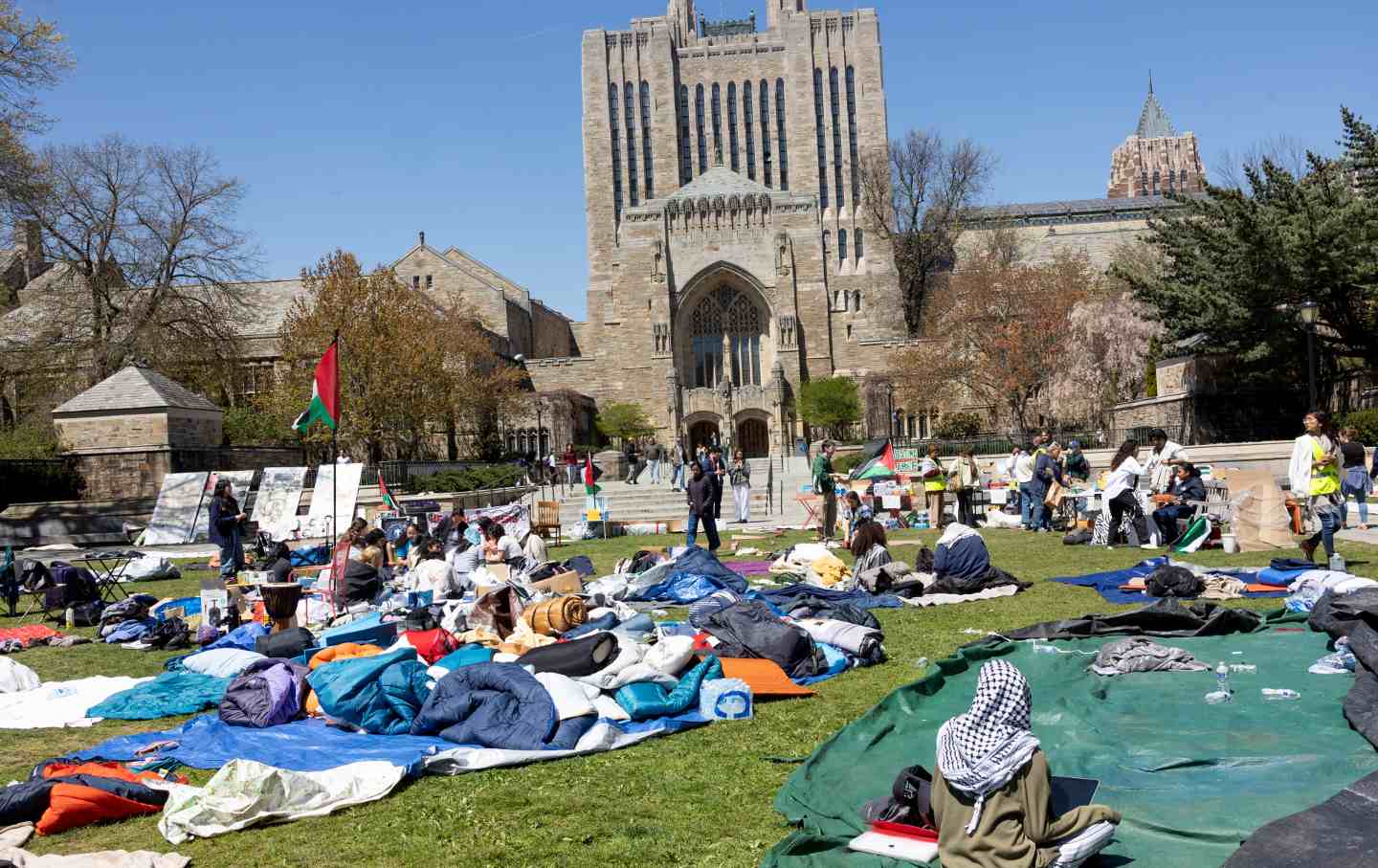
The potential next president and his allies are looking at the campus-led crackdown on free speech as a perfect dress rehearsal.
Gregg Gonsalves
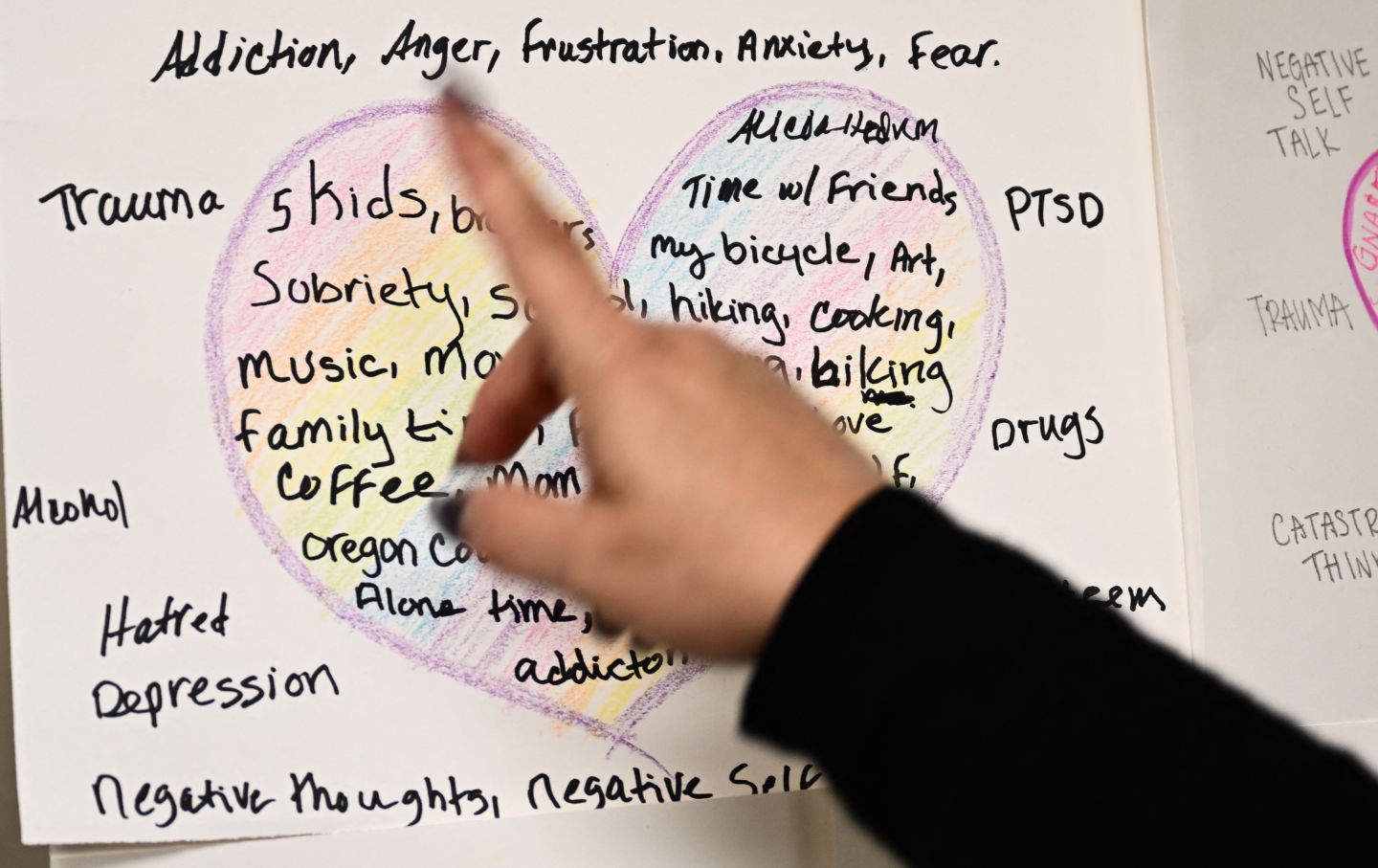
The state’s landmark decriminalization initiative wasn’t given a real chance.
Comment
/
Lydia Kiesling
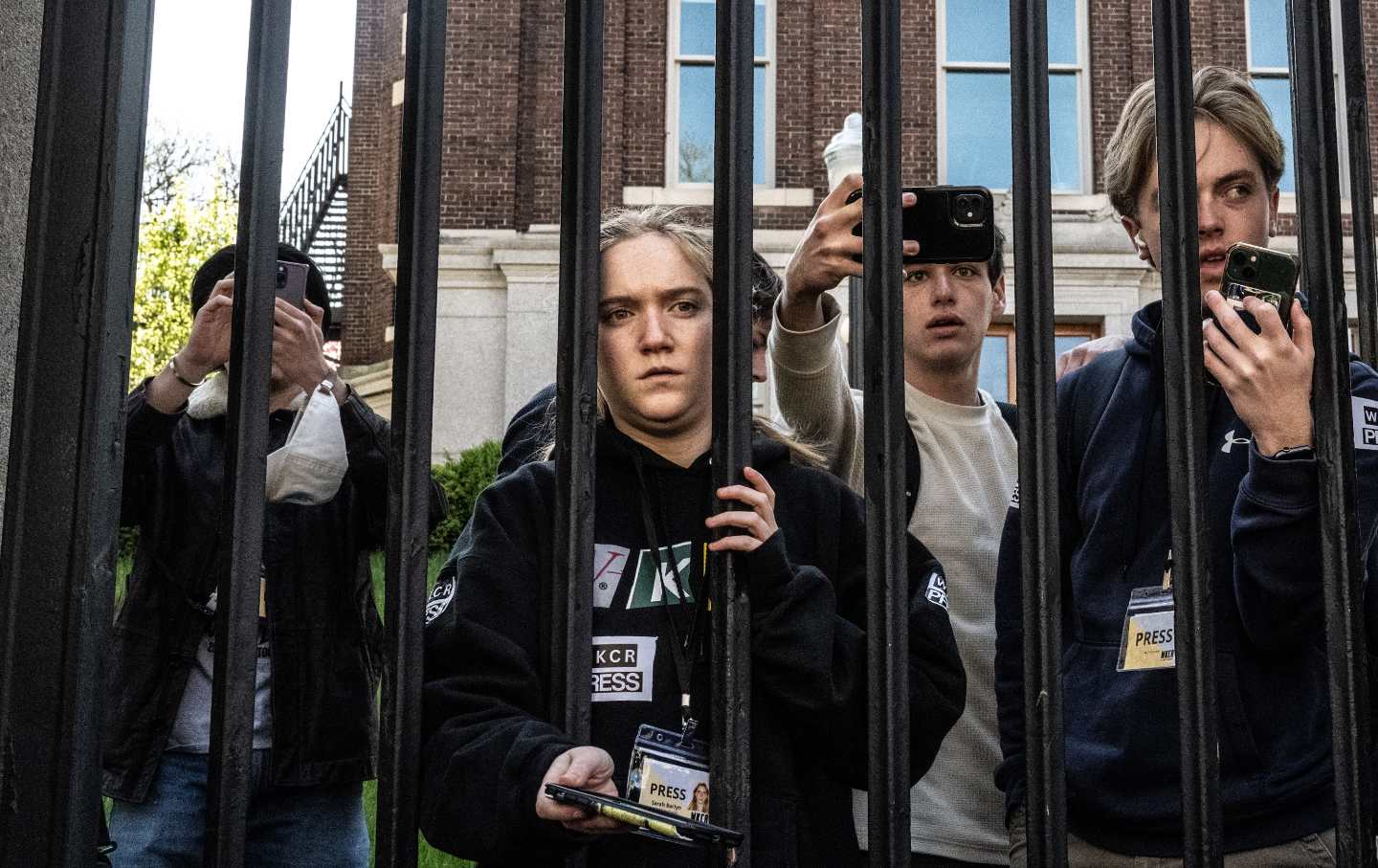
While the mainstream media repeatedly mischaracterizes pro-Palestine protests on campus, police and university administrations are attempting to repress the student press.
StudentNation
/
Amber X. Chen
![]()
The industry-friendly skies… Cuba libre… Bosses are getting the boot, too…
Letters
/
Our Readers
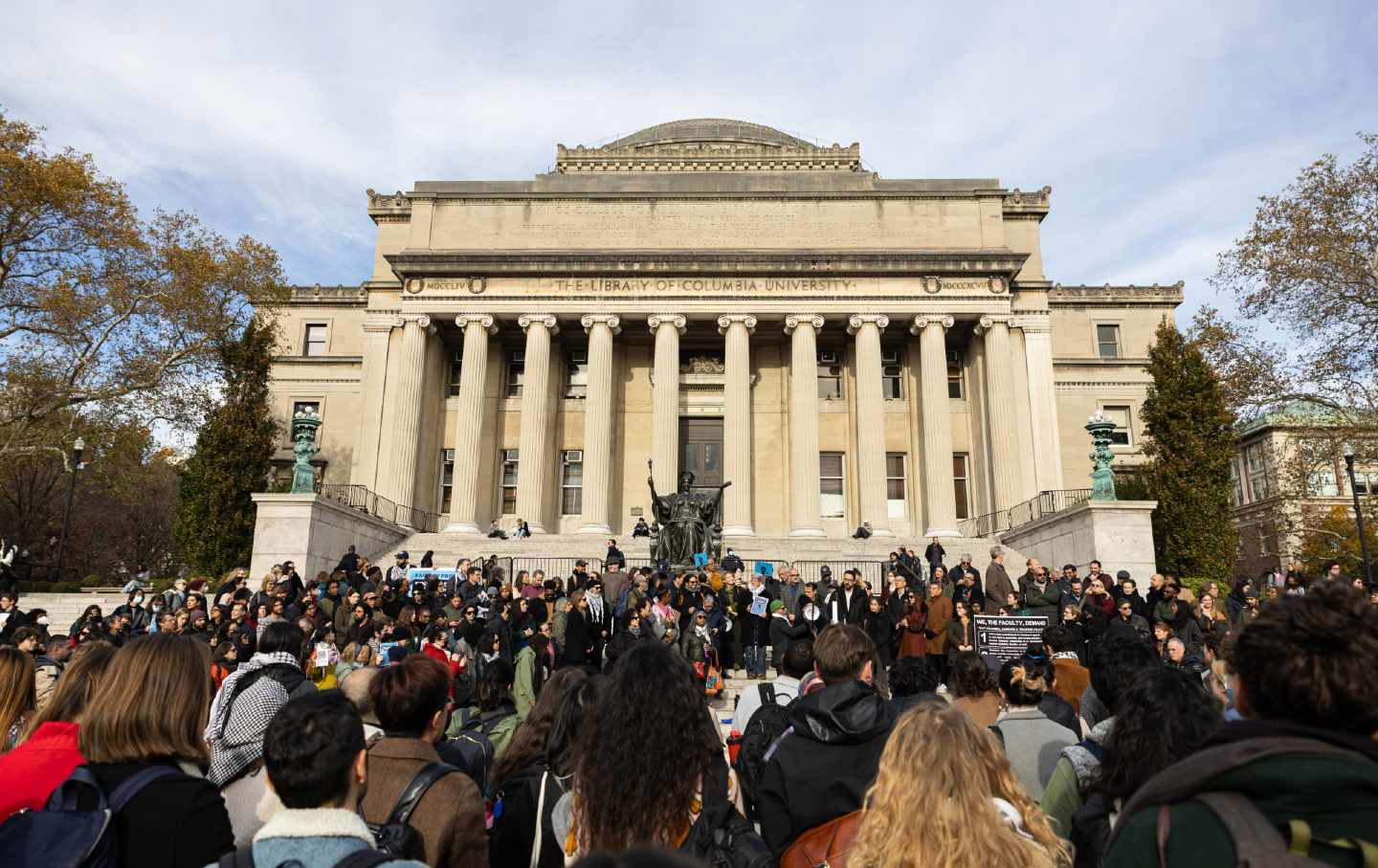
Columbia has tossed aside the mission at the heart of undergraduate liberal arts education: preparing student to be citizens in a pluralistic democracy.
Joseph A. Howley

